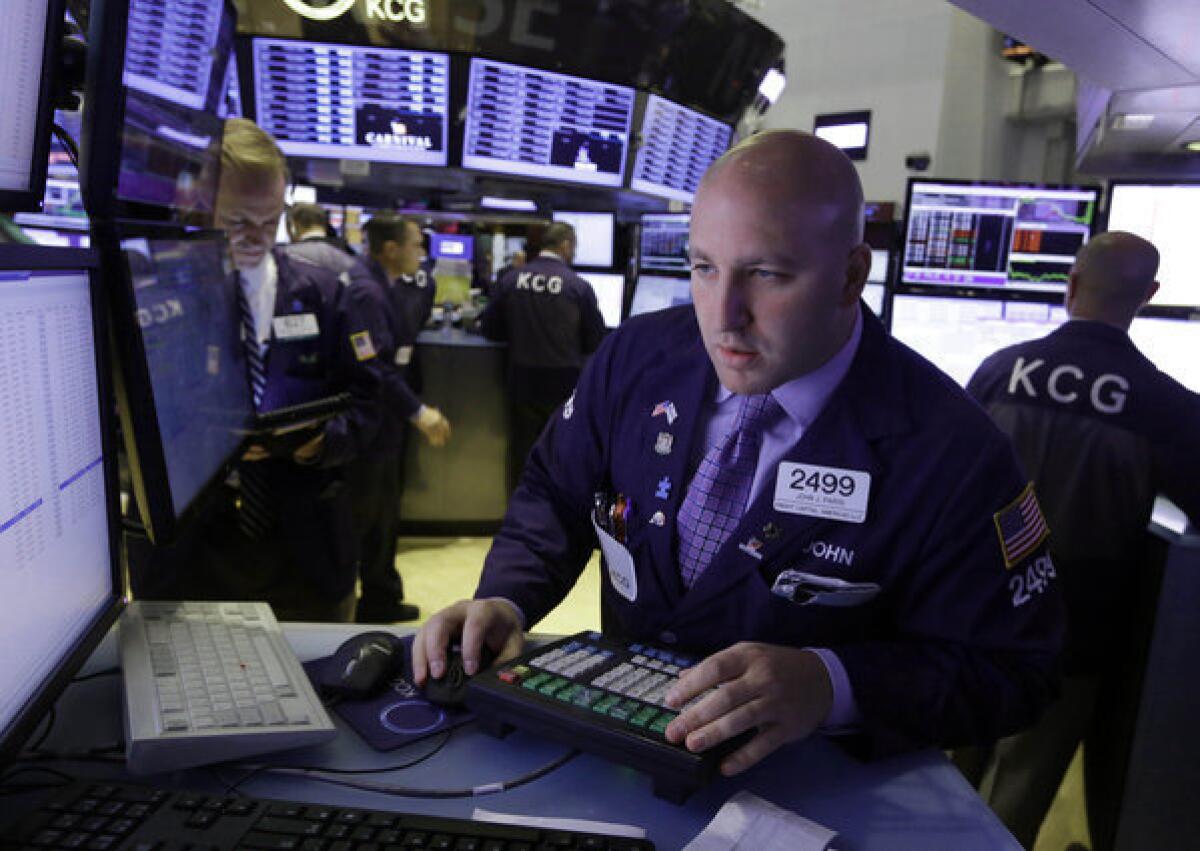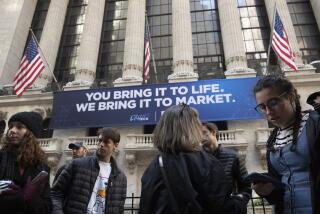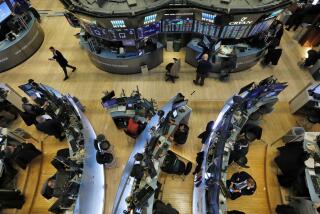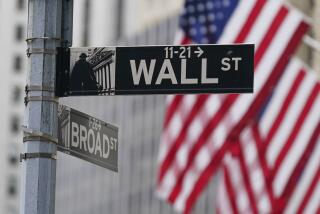Dow up 200 points amid signs of progress in Washington stalemate

NEW YORK -- Stocks rallied more than 1% in early trading amid reports that Washington lawmakers and President Obama may resume negotiations to avert a U.S. government default.
The Dow Jones industrial average jumped 200.63 points, or 1.4%, to 15,003.61 shortly after the opening bell on Wall Street.
The broader Standard & Poor’s 500 index gained 24.02 points, or 1.5%, to 1,680.42. The tech-focused Nasdaq composite index gained 61.69 points, or 1.7%, to 3,739.47.
While stocks have not plunged into a 17% correction as they did when Washington last flirted with default, major U.S. indexes have fallen about 4% over the last three weeks.
“We’ve had a pretty substantial slide,” said Randy Frederick, managing director of active trading and derivatives at Charles Schwab. The market, he said, “is looking for anything to move higher.”
QUIZ: How much do you know about the stock market?
Financial markets have nonetheless seemed unusually sanguine about the prospect of the U.S. failing to repay its debts. Wall Street, it seems, has seen this movie before, and many investors expect Congress and President Obama to strike a last-minute deal to avert the unthinkable.
“It’s just a very big annoyance,” Frederick said of the fiscal crisis and threat of default. “They just want it to be done and put behind them.”
Thursday’s stock rally came as congressional Republicans were reportedly ready to propose a short-term agreement to raise the nation’s borrowing limit. The Wall Street Journal reported GOP leaders were poised to announce a plan to increase the nation’s debt limit for six weeks.
The U.S. Treasury has said the country could technically default if the so-called debt ceiling is not raised by Oct. 17.
Treasury Secretary Jacob Lew warned Congress early Thursday that the consequences of a default could be severe -- for financial markets and the U.S. economy.
Lew noted a recent sign of anxiety in one corner of the financial markets: four-week Treasury bills. The federal government’s short-term borrowing costs have nearly tripled this week, to levels not seen since the financial crisis of 2008.
The rise in yields on one-month Treasury bonds means it currently costs the U.S. government more to borrow for a month than for a year.
ALSO:
USDA letter details unsanitary conditions at Foster Farm plants
Wall Street expects Yellen to continue Fed’s easy-money policiesDebt-limit uncertainty already stressing financial markets, Lew warns






